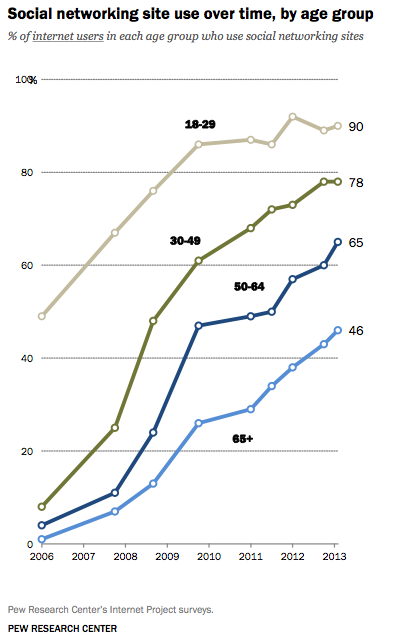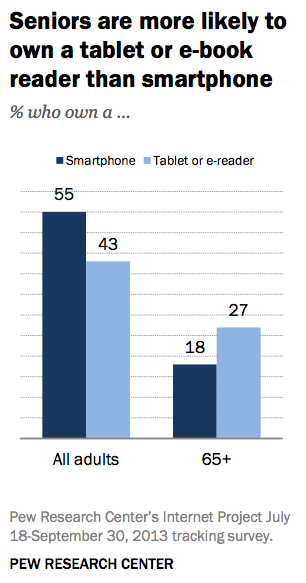Survey: Half Of Not-Online Seniors Say They’re Not Missing Out
Newly released telephone survey data from the Pew Research Center reflect that Americans over 65 use the internet in much the same way that younger people do, just not at the same penetration levels. However a large number of seniors who do not currently use the internet don’t feel that they’re missing out. The Pew […]
Newly released telephone survey data from the Pew Research Center reflect that Americans over 65 use the internet in much the same way that younger people do, just not at the same penetration levels. However a large number of seniors who do not currently use the internet don’t feel that they’re missing out.
The Pew survey, sponsored in part by the Gates Foundation, included more than 6,000 US adults and was conducted in Q3 of last year.
According to the data, 59 percent of US seniors use the internet, compared with 86 percent of the overall population. However among more affluent ($75,000+) and better educated seniors, adoption and behavior patterns more closely mirror the general population. The large majority of internet-using seniors go online daily, like their younger peers.
According to the survey data 73 percent of internet users are on social media sites. Among online seniors the number is 46 percent, with women (52 percent) considerably more involved than men (39 percent). In terms of the overall senior population (online and non-online), 27 percent use social networks, according to Pew.
Among this group of “social seniors,” most are likely using Facebook though its numbers aren’t specifically called out. However only 6 percent use Twitter, says Pew.
The survey also found that seniors are more likely to own tablets and eReaders than they are to own smartphones. Overall 77 percent of seniors own cell phones (vs. 91 percent of all adult Americans). The numbers in the chart below are reflective of the overall population.
For many older Americans there are physical or financial barriers to internet adoption. Senior internet users say they would experience a loss or disadvantage if they didn’t have access to the internet. However roughly half of non-internet seniors don’t feel as though they’re missing out on much.
Is that simply lack of experience, ignorance, a rationalization — or might they be right?
Kidding aside, there are many internet-based services and communication tools that can connect seniors with families and care providers and keep them from becoming isolated. So the question of seniors and internet access is arguably a “public health” issue that should be addressed at the level of social policy.
Wearable technology for example is an area with significant potential application to an aging population (health monitors, trackers, etc.).
Opinions expressed in this article are those of the guest author and not necessarily MarTech. Staff authors are listed here.
Related stories



